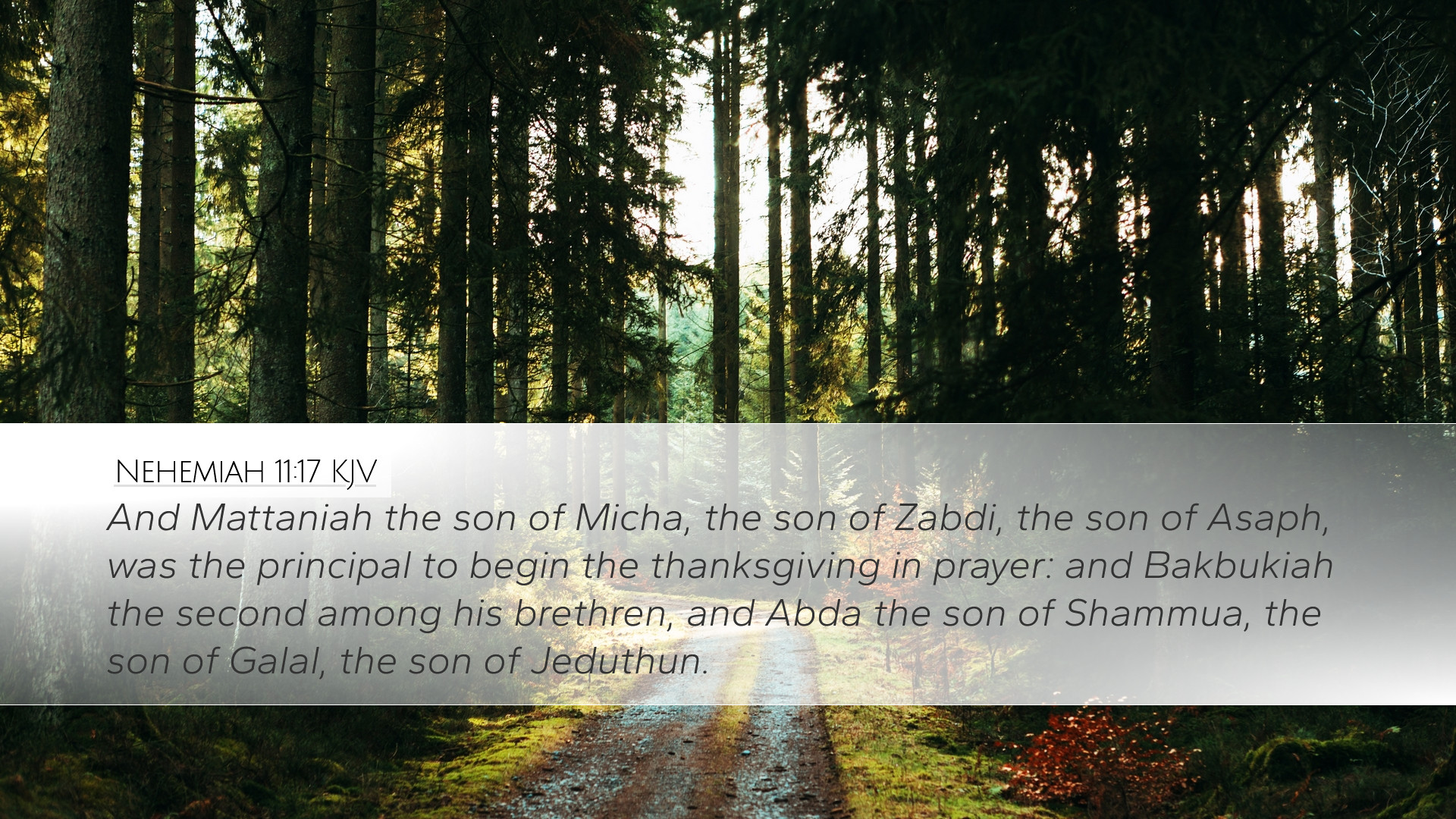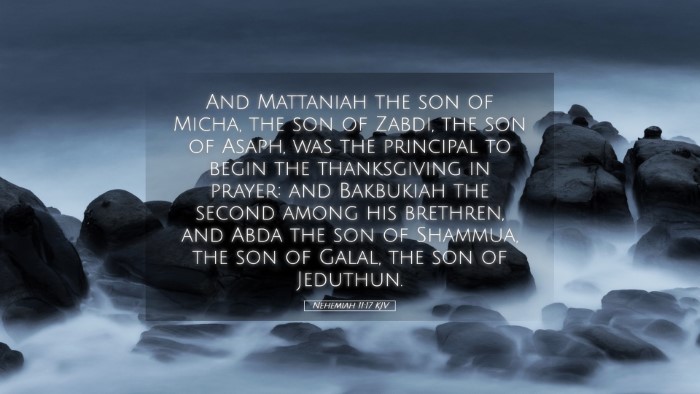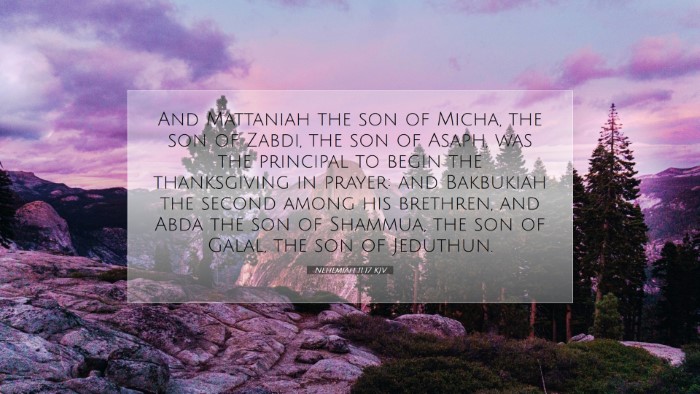Commentary on Nehemiah 11:17
Verse Context: Nehemiah 11:17 states, "And Mattaniah the son of Micah, the son of Zabdi, the son of Asaph, was the principal to begin the thanksgiving in prayer: and Bakbukiah the second among his brethren." This verse highlights the roles of specific individuals after the return from Babylonian exile, particularly pointing to the importance of worship and prayer in the restored community.
Insights from Matthew Henry
Matthew Henry emphasizes the significance of Mattaniah's role in leading thanksgiving and prayer among the people. He notes that his lineage, tracing back to Asaph, underscores a connection to a long tradition of worship. Asaph was a prominent figure in Israel's worship practices, known for his psalmody, and his descendants were entrusted with the responsibility of music and praise in the temple.
- Thanksgiving in Prayer: Henry points out that thanksgiving is a vital component of prayer, encouraging believers to approach God with gratitude rather than merely presenting requests.
- Leadership in Worship: The description of Mattaniah as the "principal" indicates the necessity for leadership in congregational worship. Efficient worship requires organization and recognized leaders who guide the community.
- Community Involvement: The reference to "his brethren" signifies the collective nature of worship, reminding us that prayers and thanksgiving are best offered in unity.
Insights from Albert Barnes
Albert Barnes provides a detailed exploration of the circumstances surrounding this verse. He suggests that Mattaniah's role was particularly crucial during a time of restoration, where the Jewish community sought to re-establish their temple worship following years of exile.
- Restoration of Worship: Barnes argues that Mattaniah embodies the renewed spirit of worship that characterized the post-exilic community, linking their present practices with historical precedents set by their forebears.
- Role of the Levites: As a descendant of the Levites, Mattaniah represents a group set apart for spiritual service. Barnes notes that in Nehemiah's narrative, Levites play a vital part in re-instituting temple order and decorum.
- Significance of Prayer: He emphasizes the concept of prayer as a powerful act of recognition of God’s sovereignty and mercy, especially vital for a community recovering from past transgressions and seeking divine favor.
Insights from Adam Clarke
Adam Clarke's commentary adds further depth regarding the implications of this verse in the context of Jewish history. He notes the importance of maintaining proper worship practices as a reflection of national identity and covenant faithfulness.
- Covenantal Identity: Clarke emphasizes that the actions of Mattaniah and the Levitical leaders were not simply about ritual but about reaffirming their covenant with God, aligning their communal life with divine expectations.
- Symbol of Hope: The verse symbolizes hope and renewal for the Jewish people after exile. Mattaniah’s leadership in worship stands as a reminder that even in brokenness, there is an opportunity to return to God.
- Intercessory Role: The mention of prayer corresponds to the priestly duty of intercession, indicating that leadership within the church today remains deeply connected to supplication on behalf of the community.
Theological Implications
This passage holds several theological implications for contemporary faith communities:
- Worship as Priority: The identification of worship leaders showcases the primacy of worship in the life of a believer. Faith communities should prioritize establishing leaders who facilitate authentic worship.
- Community and Unity: The emphasis on brethren signifies the need for unity in worship, suggesting that isolated practice diminishes the overall strength of the community's faith.
- Thanksgiving in Prayer: As the verse illustrates the importance of thanksgiving in prayer, believers are reminded to cultivate gratitude in their relationship with God, producing spiritual health within the community.
Conclusion
Nehemiah 11:17 invites pastors, students, theologians, and biblical scholars to reflect on the critical aspects of leading a community in prayer and thanksgiving. Combining insights from the commentaries of Matthew Henry, Albert Barnes, and Adam Clarke reveals a picture of worship as both a communal responsibility and a privilege, centered in gratitude and the acknowledgment of God’s past and present mercies.
As the church seeks to establish its identity in a fragmented world, returning to the prior examples set by leaders like Mattaniah assures us that, like them, we can rebuild our foundations on truth, unity, and an unwavering commitment to praise.


